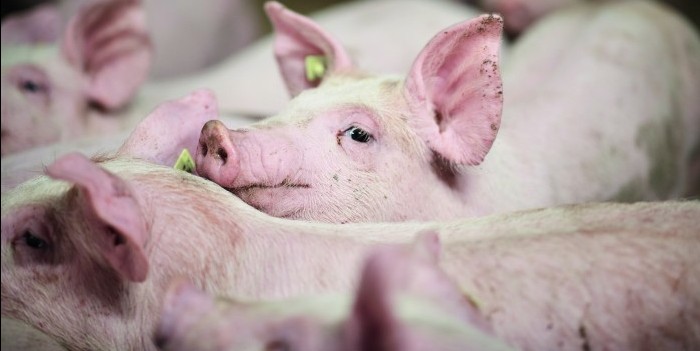Karro has dropped its weekly contribution price by 5p, following warnings from its chief executive that demand for British pork needs to increase to prevent the pig price falling.
Karro’s move on Friday leaves contribution prices from the big processors at between 175 and 190p, according to industry consultant Peter Crichton.
Prices are typically based on a mix of the contribution price, the SPP and sometimes the Weekly Tribune price, with some retailers recently introducing a cost of production element. The weekly contribution prices therefore represent one of the main mechanisms by which the processors can control the price they pay for pigs.
Last week, in an interview with Pig World, Karro chief executive Steve Ellis said the pig price has been supported ‘over and above the market level’ by processors and retailers for a number of months now.
At the moment, despite the impact of the falling UK sow herd on production, poor demand for British pork is holding back the market, which is being ‘flooded’ with EU pork, facilitated by a significant price differential, despite recent EU price hikes, Mr Ellis said. This is being partly driven cost-conscious seeking cheaper product lines, as UK pork prices rise in stores.
“At the moment, the price differential is just too big, and the danger is that British pork is becoming uncompetitive. The overriding message is that we have to sell more British pork, or the price will have to drop,” Mr Ellis said.
Mr Ellis revealed that Karro was set to ‘correct’ its weekly price to compensate for the Tribune price, which sits a few pence above the SPP.
Further chill
In its latest weekly market update, Thames Valley Cambac, said there was a ‘further chill in the air this week as one of the large processors feels it’s necessary to take 5p out of their contribution price to their primary suppliers, against a backdrop of all other buyers continuing to increase with overall prices’.
“This was in a bid from the buyers perspective to move more British product against the head wind of cheaper alternative product available from overseas due to consumers buying habits being determined by them voting with their wallets,” TVC said.
“These same consumers have little choice but to pay more for everything else they consume in their day to day lives, other than less essential expensive pork it seems!
“However, ‘less’ is the operative word for future supplies on the current direction of travel from our industry, as this move will invariably insight more of the one decision the primary producer can still have control over, and that’s whether to continue or not!”
Meanwhile, German market prices stood on this week as again did the UK sow market. TVC noted that while the SPP had broken psychological £2/kg barrier, it could well be difficult to maintain over the coming weeks if price momentum is further challenged.
European prices appreciated on the back of a stronger Euro that ended the week at 88.2p, a level not seen since January 2021.
Weaner and store markets continue to see little change again this week, with an insignificant number moved outside contractual agreements or foe the AHDB data sample to be produced. Prices for 7kg weaners remain as last week £46-£48 average, including a percentage of ODB piglets neither at 7 nor 30kg.




